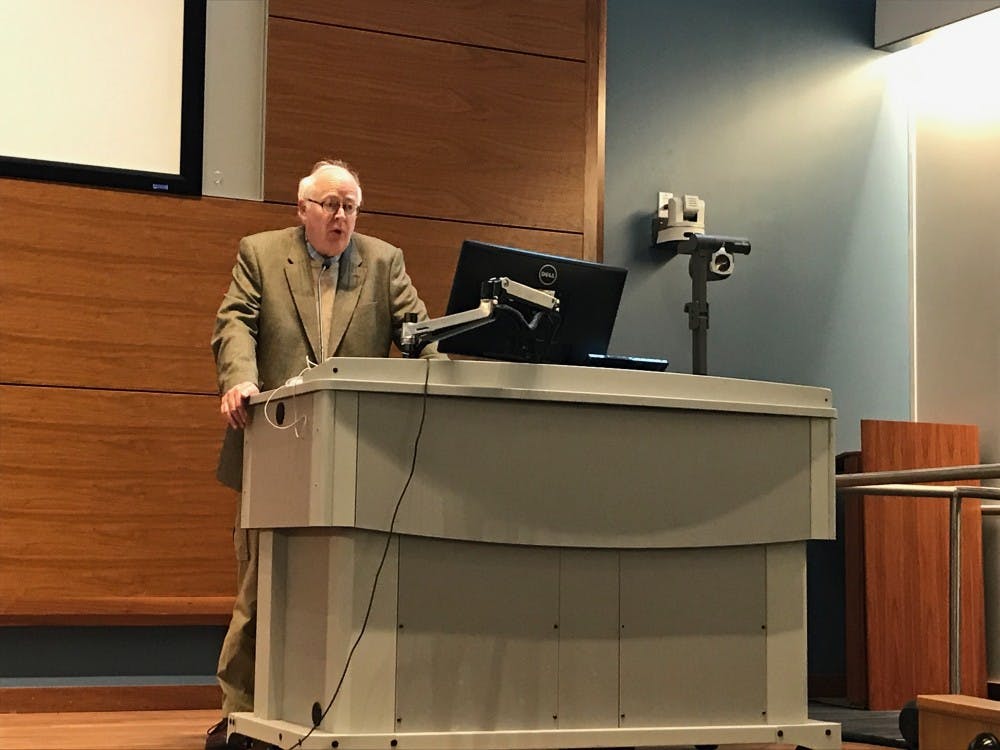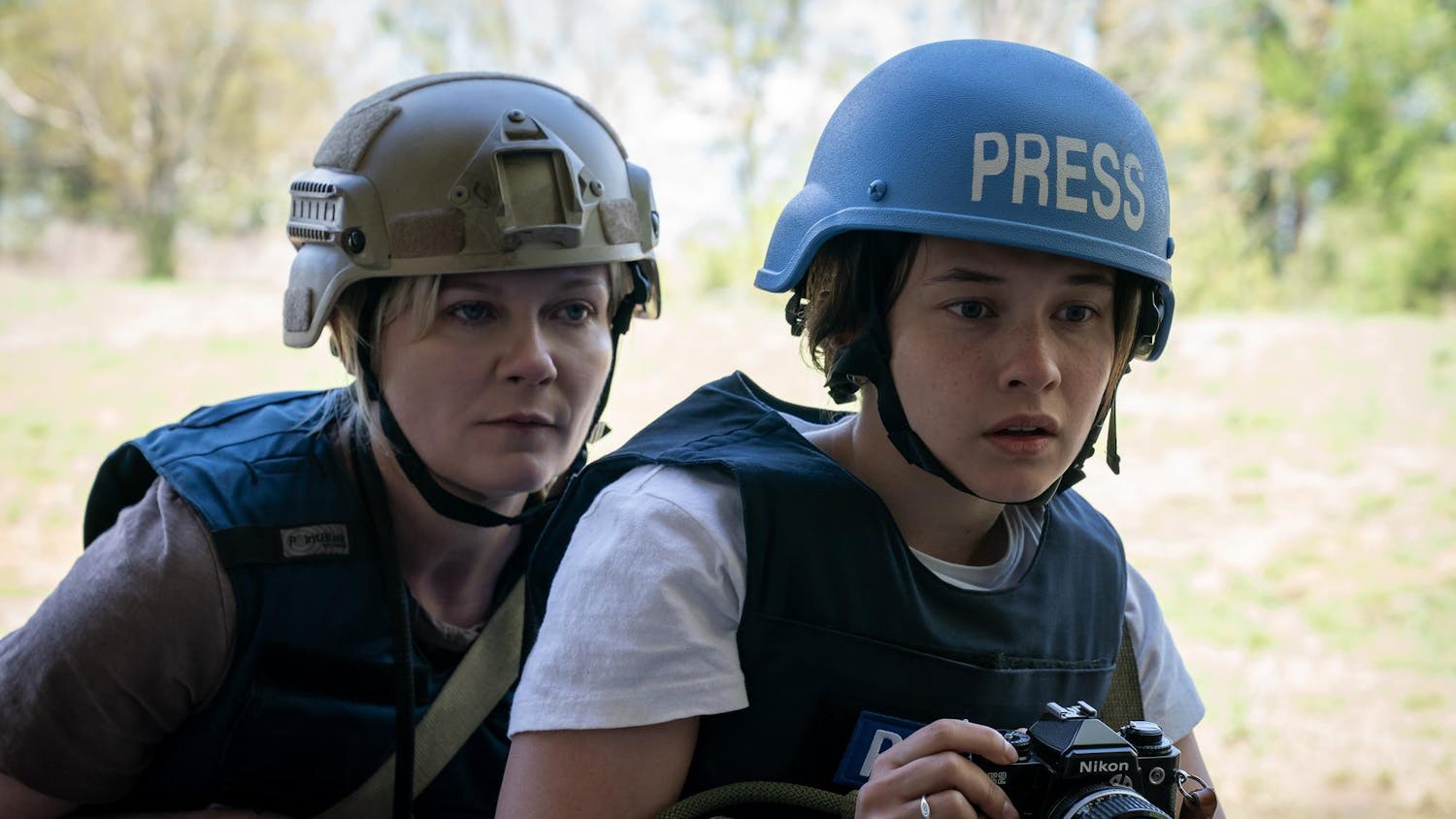Although Americans and other Westerners are especially aware of the Taliban each Sept. 11, Afghans live in fear of the group’s terrorism every day, said William Maley, a diplomacy professor from Australian National University.
“It’s important that we also not forget about what’s going on in Afghanistan,” Maley said.
In his speech, Afghanistan and the "War on Terror": A Retrospective Appraisal, Maley spoke about modern Afghan politics to a crowd of 100 people Monday night in the Global and International Studies Building. In addition to the significance of the Sept. 11 terror attacks in the history of relations between Afghanistan and the U.S., the talk also came just weeks after President Trump’s decision to send more troops to turn around the war in Afghanistan.
“The topic is one that remains a live one,” Maley said.
Despite its current reputation, Afghanistan may have been the most stable Asian country during the mid 20th century, but it has not been able to find peace since the Soviet invasion in the late 1970s, Maley said. In recent years, it has faced troubles from unspecific modern government to the Taliban regime.
Maley said he believes negotiations between the Taliban and the Afghan government are an unpromising root to stability because of the Taliban’s unwillingness to be diplomatic. This has led the rest of the world to poor compromises in ineffective attempts to bring peace.
For example, the Afghangovernment signed a document that said women’s rights did not have to be an immediate concern in Afghanistan, giving the Taliban freedom to continue their abuse of women.
“That particular event has struck a lot of fear into women in Afghanistan now,” Maley said.
Although Maley said he knows a country’s transformation doesn’t happen overnight, he is surprised by the decision to compromise women's rights.
Because negotiations seem to fail, Maley said future efforts must come from other methods.
He said he thinks the focus should be on stopping Pakistan’s involvement with and aid of the Taliban, because nothing will improve for Afghanistan while it is up against state-sanctioned assistance of terrorism.
America may even have to work with China, a Pakistani ally, to put pressure on Pakistan to stop aiding the Taliban, Maley said.
Freshman and international studies major Emma Norris said she came to listen to Maley so she could get extra credit for her class on global terrorism, but her interest in the Middle East extends past her grade.
When she did Model United Nations in high school, she represented Iran during her freshman year. She said she has been interested in the area ever since.
Talks like Maley’s offer an alternative viewpoint to what most Americans believe is happening across the globe, Norris said.
“I feel as though the Western perception on the Middle East is often clouded and confused because of the fear of the other that all — or not all, but a lot — of Americans seem to have,” Norris said.
Shafiqullah Fahim said Maley’s talk was doubly important to him as both an international studies graduate student and an Afghan.
With his Central Asia regional concentration for his degree, Fahim was able take what he learns in class and apply it in a different setting.
As an Afghan, he said he is glad to have an someone explain what is going on in his home country.
“It makes me happy that we are having these kinds of conventions,” Fahim said.
For Fahim, the talk’s Sept. 11 date served as a serious educational point about the relationship Afghanistan and the United States have and highlights how diplomacy and war strategies have changed in the past 16 years.
“It reminds us that it was not just one day that we would forget,” Fahim said.






